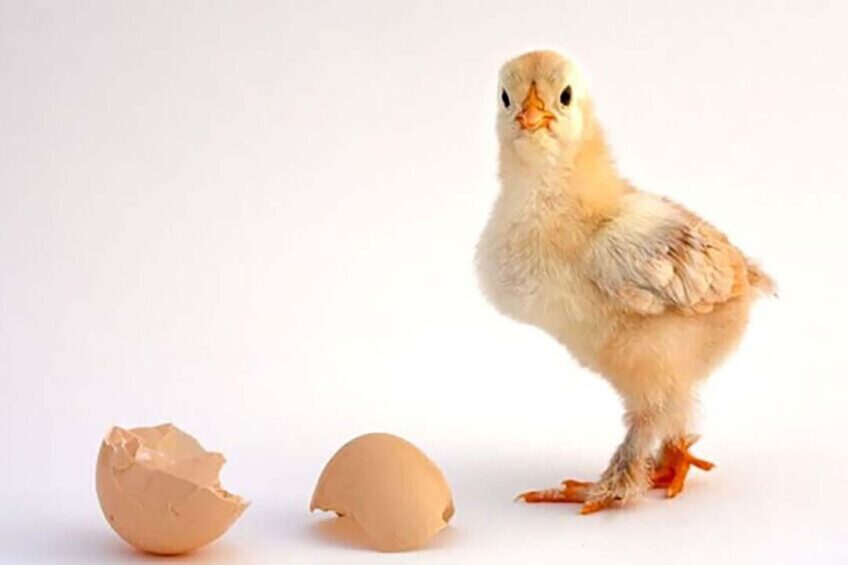April Business Update: What’s new in the world of poultry?

We’re keeping our finger on the pulse and bring you a summary of the latest business updates from the global poultry industry this April.
Egg Innovations prepares to introduce in-ovo technology to end chick culling
Egg Innovations aims to be the first US-based company committed to implementing in-ovo sexing technology to populate their family farms. In-ovo sexing is, today, only available in Europe. John Brunnquell, founder and CEO of Egg Innovations: “Humane care is centric to our mission. This commitment to in-ovo sexing is a huge step as we will be able to label our products ‘free of chick culling’. While it’s an unknown if the market is ready to embrace this, we know it’s the right thing to do. We are excited to trailblaze with this technology in the US.” The company plans to utilise their regenerative farming Helpful Hens brand as the vehicle to introduce this commitment to egg consumers nationwide in 2025.
ADM shares environmental analysis of its broiler feed additive

ADM has performed a Life Cycle Assessment for Xtract 6930, a plant extract-based feed additive for monogastric animals, on broiler operations within Asia, Latin America, Europe and North America. Results showed a reduction by at least 1.9% of the carbon footprint of live broilers, and at least 2.8% reduced carbon footprint of broiler meat production. In other words, 1 kg CO2 eq. spent using Xtract results in savings of 75 kg CO2 eq. in live broiler farming and a savings of 100 kg CO2 eq. in broiler meat processing. Xtract 6930 leverages microencapsulated active substances found in aromatic plants and spices with demonstrated physiological effects on poultry.
Insects as an alternative source of protein focus of Inhouse Farming event

Can the industrial breeding of insects as animal feed contribute to feeding the growing world population? The ‘Inhouse Farming – Feed & Food Show’, which will take place from 12-15 November 2024 in Hanover, Germany, is dedicated to answering this question. The B2B platform focuses on technologies and solutions that show that insects can now be used economically as an alternative source of protein for sustainable animal feed.
DSM-Firmenich gets EU authorisation for Hy-D and approval for ProAct 360
DSM-Firmenich has announced a renewal of the EU authorisation for 25OHD3 (Hy-D) from Saccharomyces cerevisiae CBS 146008 in poultry and pigs and extension for its use in ruminants, based on its Hy-D scientific dossier submitted to the European Food Safety Authority. In poultry and pigs, the company says Hy-D improves bone strength, optimises health, increased meat and egg yield, and enhanced overall quality. The company, and its alliance partner Novonesis, has also announced EU approval for the feed protease ProAct 360 for use in all fattening poultry and in chickens reared for laying and breeding. ProAct 360 represents new enzyme technology that the companies say breaks down protein faster across a broad range of feed ingredients, delivers greater digestibility of all amino acids and better degrades anti-nutritional factors.
Eagle Product Inspection highlights dual energy x-ray technology

Eagle Product Inspection, involved in advanced inspection and product safety solutions, says dual energy technology, such as it Performance X-Ray Technology and Material Discrimination X-Ray, reveals materials previously undetected by single energy x-ray technology or other conventional methods and is ideal for hard-to-find contaminants in poultry, seafood, red meat, cheese blocks, pet food, bags of salad, and trail mix. The technology detects foreign bodies, bones and metals while performing product quality and integrity tests.
DSM-Firmenich and Agrifirm partner to create a new poultry platform
DSM-Firmenich and Agrifirm have announced a strategic partnership to create a platform for poultry performance optimisation focused on health and sustainability. Bringing together DSM-Firmenich’s life cycle assessment platform Sustell and Agrifirm’s PoultryNEXT, a data platform for poultry production performance insights, the new platform offers a solution for transparent and responsible poultry production addressing the value chain needs. A high-feasibility pilot will now be rolled out with Agrifirm partner farms, utilising PoultryNEXT with sustainability insights provided by Sustell. The service will give farmers access to high-quality sustainability insights such as a farm’s environmental footprint.
Alltech reports on study of yeast cell wall extract during mycotoxin challenges in layers

Alltech has announced a new study highlighting the positive effects of yeast cell wall extract supplementation on layer performance during mycotoxin challenges. The study demonstrated that the inclusion of yeast cell wall extract Mycosorb during mycotoxin challenges results in an increase in layers’ body weight by 12.5g, and a substantial increase in egg production and egg weight by 4.2 percentage points and 1.37g, respectively. The meta-analysis showed that layers fed mycotoxins experienced lower body weight (by 50g), decreased egg production (by 6.3 percentage points), and reduced egg weight (by 1.95g) compared to control-fed birds.












